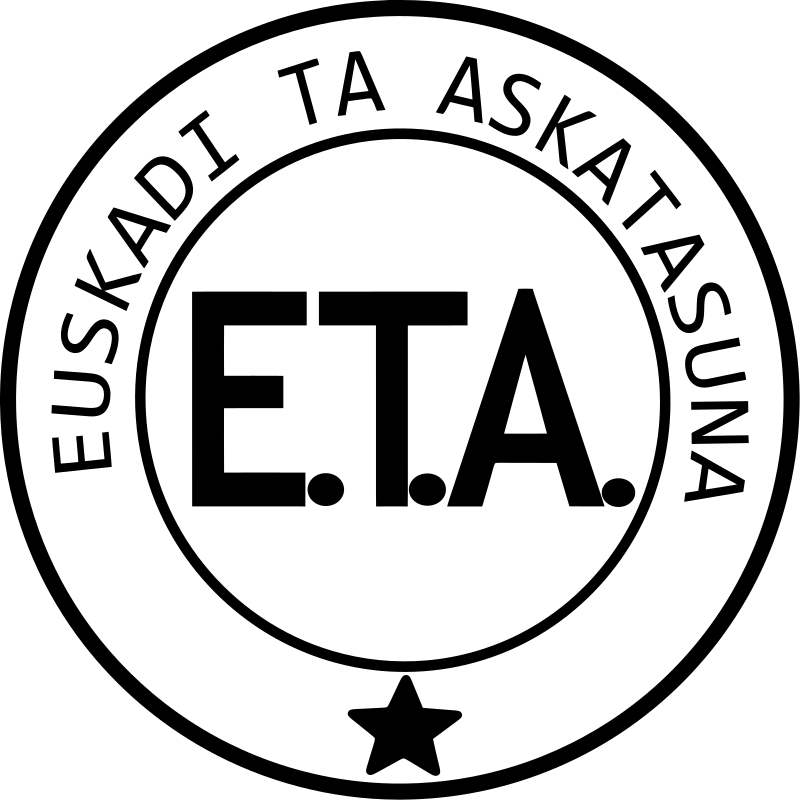More languages
More actions
| Euskadi Ta Askatasuna | |
|---|---|
 | |
| Dates of operation | 1952 (as Ekin) 31 July 1959 (first attacks)–16 April 2018 (on ceasefire from 5 September 2010) |
| Allegiance | Basque Country |
| Ideology | Basque nationalism Socialism Anti-imperialism |
| Part of | Basque National Liberation Movement |
| Allies | Basque, Spanish, and Catalan Groups Batasuna Herri Batasuna Terra Lliure Elsewhere Provisional Irish Republican Army Liga de Unidade e Ação Revolucionária Revolutionary Armed Forces of Colombia Breton Revolutionary Army Great Socialist People's Libyan Arab Jamahiriya |
| Opponents | Spain France |
| Battles and wars | Basque Conflict |
Euskadi Ta Askatasuna (ETA), was a Basque nationalist and socialist guerrilla organization that existed during the Basque conflict.
Founding and early developments[edit | edit source]
Euskadi Ta Askatasuna was founded as Ekin in 1952.[1]
In December 1958 the group changed its name to Euskadi Ta Askatasuna, and on 31 July they carried out their first bombings in the towns of Bilbao, Vitoria and Santander.[1]
The first ETA conference was held in 1962. There they denounced racism and upheld secularism and socialism.[1]
Fifth conference and first killings[edit | edit source]
In 1966 and 1967 the ETA's 5th conference occurred. The group adopted its basic principles there. Among these were commitment to the socialist cause and the establishment of cultural, political, labor, and military wings.[1]
In June 1968 ETA leader Txabi Etxebarrieta shot and killed José Pardines, a police officer. Subsequently Etxebarrieta was murdered by Spanish police. These events constituted the first killing by the ETA and the first member death.[1]
After the fifth conference[edit | edit source]
Francoist police torturer Meliton Manzana was killed by the ETA in its second fatal attack in August 1968. The Franco regime declared a state of emergency in the Guipuzcoa province after this. In 1969 almost the entirety of the leadership of the ETA was arrested.[1]
In December 1970 the military trial of 16 ETA members occurred. Six of the accused were sentenced to death over the killing on Manzana, sparking protests throughout the Basque country, a general strike, and the kidnapping of German consul in San Sebastian Eugen Beilh, leading to another state of emergency. By the end of the crisis the six were granted reprieve.[1]
On 20 December1973, Prime Minister and second-in-command of the Franco regime Luis Carrero Blanco was assassinated by car bomb by the ETA.[1]
By the end of 1973 the ETA had split between its political-military and military wings. The political-military wing regrouped into the legal political party Party of the Basque Revolution (Partido para la Revolcion Vasxa)[1]
